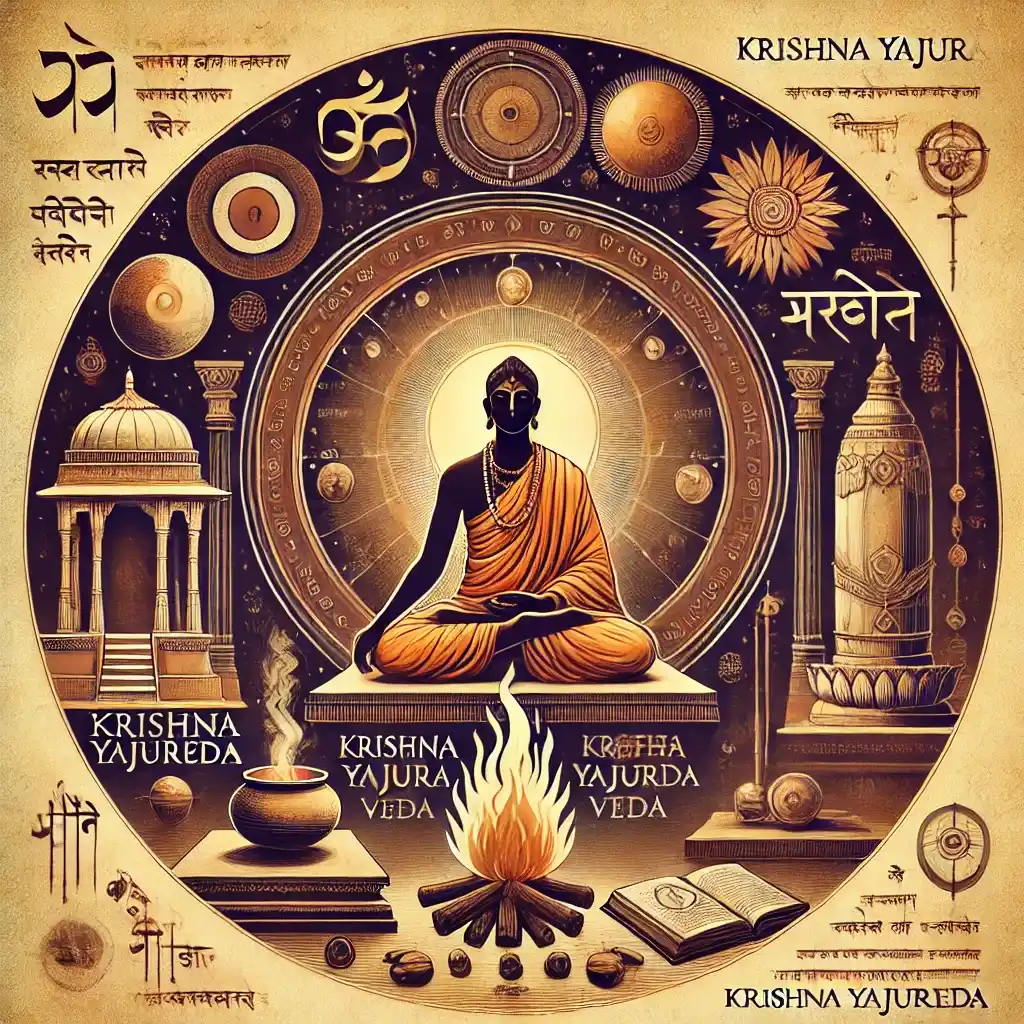
The Vedas
Krishna Yajurveda
An Ancient Spiritual Guide for Humanity
The Krishna Yajurveda, one of the four Vedas in Hinduism, is a profound text that carries immense significance in the spiritual and ritualistic practices of Hinduism. The Yajurveda itself is divided into two main recensions: the Krishna (black) Yajurveda and the Shukla (white) Yajurveda. The Krishna Yajurveda is distinguished by its unique combination of prose and verse, making it a critical component of Vedic literature. This blog delves into the origins, structure, and key teachings of the Krishna Yajurveda, offering insights into its relevance in contemporary spirituality.
Origins and Historical Significance
The Krishna Yajurveda is believed to have been composed between 1200 and 1000 BCE, making it one of the oldest religious texts in existence. It is primarily associated with the Taittiriya school, one of the four Vedic schools that preserved and transmitted the Yajurveda over generations. The term "Krishna" in its name means "black," referring to the mixed and unarranged nature of the text, unlike the more organized Shukla Yajurveda.
This Veda holds a special place in Hindu rituals, particularly in the performance of yajnas (sacrificial rituals). The text is a manual for priests, guiding them in the correct performance of these rituals, which are believed to maintain cosmic order and ensure the well-being of society.
Structure of the Krishna Yajurveda
The Krishna Yajurveda is divided into several parts, each with its specific focus:
Samhitas: The Samhitas are collections of hymns and mantras used during rituals. The Krishna Yajurveda Samhita contains a mix of prose and verse, making it unique among the Vedas. The Taittiriya Samhita is the most well-known collection associated with this Veda.
Brahmanas: These are prose texts that explain the rituals in detail. The Taittiriya Brahmana is a key text that provides instructions for conducting various yajnas, including the famous Soma sacrifice.
Aranyakas: The Aranyakas are texts meant for meditation and philosophical reflection. They are typically studied by those who have withdrawn from society to live in the forest, hence the name "Aranyaka," meaning "belonging to the forest." The Taittiriya Aranyaka is a significant part of this section.
Upanishads: The Upanishads are philosophical treatises that explore the nature of the self and the universe. The Taittiriya Upanishad is one of the most important Upanishads and is a profound exploration of the concept of Brahman (the ultimate reality).
Key Teachings and Concepts
The Krishna Yajurveda is rich in teachings that have shaped Hindu thought for millennia. Some of the key concepts include:
Rituals and Sacrifices: The Krishna Yajurveda places great emphasis on the performance of yajnas, which are seen as essential for maintaining cosmic order. The rituals described in the text are intricate and involve precise recitation of mantras and offerings to the deities.
Dharma: The concept of dharma, or duty, is central to the Krishna Yajurveda. The text outlines the duties of various members of society, including priests, kings, and common people. By performing their dharma, individuals contribute to the harmony and balance of the universe.
Meditation and Knowledge: While the Krishna Yajurveda is primarily a ritualistic text, it also contains teachings on meditation and the pursuit of knowledge. The Taittiriya Upanishad, in particular, emphasizes the importance of self-knowledge and the realization of Brahman.
Cosmology: The Krishna Yajurveda offers a detailed cosmology, explaining the creation and structure of the universe. It describes how the gods and elements were born from the sacrifice of the primordial being, Purusha, and how the world is sustained through ongoing sacrifices.
Relevance in Contemporary Times
In modern times, the Krishna Yajurveda continues to be studied and revered by scholars and practitioners alike. Its teachings on rituals and dharma are still relevant, offering guidance on how to live a life in harmony with the cosmic order. The Upanishadic portions of the text, with their focus on self-realization and the nature of reality, resonate with contemporary spiritual seekers looking for deeper meaning in life.
Furthermore, the Krishna Yajurveda's emphasis on the interconnectedness of all things aligns with modern ecological and holistic perspectives. The idea that humans, gods, and nature are all part of a single cosmic order encourages a sense of responsibility towards the environment and all living beings.
Conclusion
The Krishna Yajurveda is a timeless spiritual guide that offers profound insights into the nature of reality, the importance of rituals, and the concept of dharma. Its teachings have shaped Hinduism and continue to inspire spiritual seekers around the world. As we navigate the complexities of modern life, the Krishna Yajurveda provides a valuable framework for living in harmony with the universe, reminding us of the importance of duty, knowledge, and spiritual practice.
Whether you are a scholar, a practitioner, or simply someone interested in the wisdom of ancient texts, the Krishna Yajurveda offers a rich tapestry of knowledge that can deepen your understanding of the world and your place in it.

Explore the latest and most popular products available on Amazon, handpicked for your convenience! Whether you're shopping for tech gadgets, home essentials, fashion items, or something special, simply click the button below to view the product on Amazon. We’ve partnered with Amazon through their affiliate program, which means that if you make a purchase through this link, we may earn a small commission at no extra cost to you. This helps support our site and allows us to continue providing valuable content. Thank you for your support, and happy shopping!